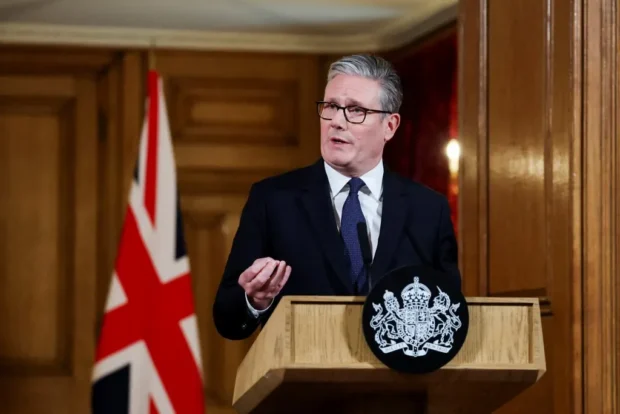
The United States Environmental Protection Agency plans to revoke a key scientific finding on climate change that underpins major environmental and pollution regulations.
EPA Administrator-designate Lee Zeldin announced Tuesday that the agency would eliminate the 2009 “endangerment finding” linking motor vehicle emissions to climate change and adverse health impacts.
Speaking on the Ruthless podcast, Zeldin criticized current approaches to carbon emissions regulation, stating that advocates “say carbon dioxide is a pollutant and that’s the end of it” without acknowledging “any type of benefit or need for carbon dioxide.”
“It’s important to note, and they don’t, how important it is for the planet,” Zeldin said.
The endangerment finding, established under President Barack Obama, provides the scientific foundation for regulating greenhouse gas emissions, including vehicle emissions standards. Conservative lawmakers and fossil fuel companies have repeatedly targeted the finding for repeal, though it has survived multiple legal challenges.
Revoking the finding represents part of the Trump administration’s broader effort to reduce environmental protections and regulations to stimulate economic growth. Reuters reported last week that EPA also plans to eliminate greenhouse gas emissions standards for light-duty, medium-duty and heavy-duty vehicles.
Zeldin framed the repeal as economically beneficial, arguing that climate change advocates are “willing to bankrupt the country” through excessive regulation.
“They created this endangerment finding and then they are able to put all these regulations on vehicles, on airplanes, on stationary sources, to basically regulate out of existence, in many cases, a lot of segments of our economy,” Zeldin explained.
He described the action as potentially the “largest deregulatory action” in US history and suggested it could significantly impact climate change efforts, saying it has been characterized as “driving a dagger into the heart of the climate change religion.”
Research from Harvard University’s TH Chan School of Public Health indicates that reduced vehicle emissions contributed to declining air pollution deaths, from 27,700 in 2008 to 19,800 in 2017. The study attributed this improvement to federal regulations and technological advances, noting that without emission reductions, deaths could have reached 48,200 by 2017.
Environmental supporters view air pollution regulations as essential for addressing climate change and protecting public health.
President Trump has consistently challenged scientific consensus on climate change, previously calling it a “hoax” and advocating for increased fossil fuel production. Energy Secretary Chris Wright recently wrote in The Economist that climate change represents “not an existential crisis” but a “byproduct of progress,” stating his willingness to accept “the modest negative trade-off for this legacy of human advancement.”
The United Nations estimates that climate change could cause 250,000 additional deaths annually between 2030 and 2050 due to tropical diseases, heat stress and food security issues.













Be the first to leave a comment